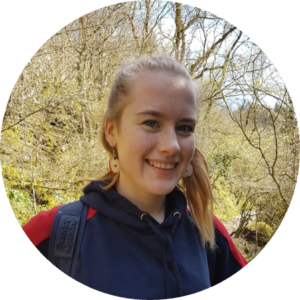We’re excited to welcome three new PhD students to the DARC group this academic year. They’ll be tackling different elements of the challenging problem of high-resolution data assimilation. Read on to learn more about their backgrounds and future work.
 Miranti Indri Hastuti graduated with a master’s degree in Atmospheric Science from Kyungpook National University (KNU), South Korea. She has worked as a weather forecaster for almost seven years in the Agency for Meteorology, Climatology, and Geophysics of the Republic of Indonesia (BMKG).
Miranti Indri Hastuti graduated with a master’s degree in Atmospheric Science from Kyungpook National University (KNU), South Korea. She has worked as a weather forecaster for almost seven years in the Agency for Meteorology, Climatology, and Geophysics of the Republic of Indonesia (BMKG).
In Indonesia, weather forecast accuracy remains a major challenge in tropical regions due to the dominance of convection events. These events are strongly influenced by topography and seasons. According to National Agency for Disaster Countermeasure (Badan Nasional Penanggulangan Bencana, BNPB) data, in 2023, hydrometeorological disasters (flood and extreme weather) contributed to more than 50% of natural hazards that happened in Indonesia, causing significant casualties and environment damage. Thus, Miranti plans to research convection–permitting numerical weather prediction (NWP) for an Indonesian domain to enhance the forecast of high-impact weather events. Specifically, she will develop a realistic and correctly spread high-resolution ensemble for Indonesia using perturbed physics and ensemble data assimilation techniques. She will also work on the assimilation of infrared all-sky satellite observations.

Kate Huxtable has recently joined DARC as a PhD student, looking at using explainable AI techniques to improve convective-scale ensemble data assimilation. The aim is to develop a means of identifying and categorising different weather features, such as fronts and boundary layer inversions, and the errors associated with them in the UKV domain. In the long term it is hoped an approach such as this could be used to develop an adaptive weather-dependent localisation scheme. She’ll be undertaking this project with Alison Fowler and Ross Bannister from DARC, as well as Todd Jones (Department of Computer Science) and Marek Wlasak (Met Office).
Kate will be studying for her PhD part-time and mostly remotely, as she also works in the Atmosphere and Land Data Assimilation team at the Met Office. She’s worked at the Met Office for two years, and her work has been focused on developing Met Office’s next-generation global ensemble data assimilation system in JEDI (Joint Effort for Data assimilation Integration). Prior to this she studied MSc Applied Meteorology at the University of Reading. Her dissertation was titled ‘The flow-dependency of forecast errors in a simple convective model’ and was supervised by Ross Bannister, Guannan Hu and Sarah Dance. She studied BSc Mathematics at the University of Birmingham.
 Ravi Shankar Nemani is an AFESP-DTP PhD research student based at the Department of Meteorology, University of Reading. He holds a Bachelor’s degree in Computational Physics and has advanced his expertise with a Master of Science in Meteorology from the Department of Meteorology & Oceanography, Andhra University. During his MSc, he focused on applying deep learning models to identify various cloud types using data from geostationary satellites. This allowed him to explore the intersection of artificial intelligence and atmospheric sciences, developing robust tools for satellite data analysis.
Ravi Shankar Nemani is an AFESP-DTP PhD research student based at the Department of Meteorology, University of Reading. He holds a Bachelor’s degree in Computational Physics and has advanced his expertise with a Master of Science in Meteorology from the Department of Meteorology & Oceanography, Andhra University. During his MSc, he focused on applying deep learning models to identify various cloud types using data from geostationary satellites. This allowed him to explore the intersection of artificial intelligence and atmospheric sciences, developing robust tools for satellite data analysis.
After that, Ravi completed a Master of Technology in Remote Sensing & GIS with a specialization in Marine and Atmospheric Sciences at the Indian Institute of Remote Sensing, Indian Space Research Organisation (IIRS, ISRO). There, he honed his skills in satellite data assimilation, particularly utilizing hyperspectral data for regional weather forecasting and improving tropical cyclone track and intensity prediction.
Ravi’s PhD project is machine Learning driven balance relationships for next-generation data assimilation systems. His supervisors are Dr. Ross N Bannister (Research Fellow, Dept of Meteorology – UoR and NCEO), Prof. Amos Lawless (Professor, Dept of Mathematics & Statistics – UoR and NCEO), Dr. Christopher Thomas (Senior Scientist, MetOffice@Reading) and Dr. Hong Wei (Associate Professor, Dept of Computer Science, UoR). His PhD research is intended to investigate the forecast error statistics of high-resolution numerical weather prediction systems, focussing on data assimilation and how machine learning can be used to model the background error covariance matrix.

